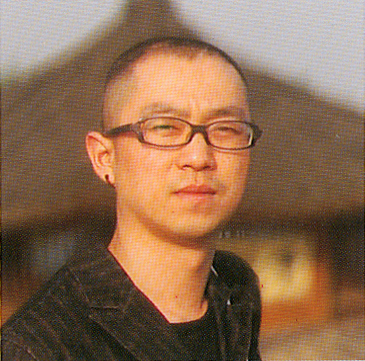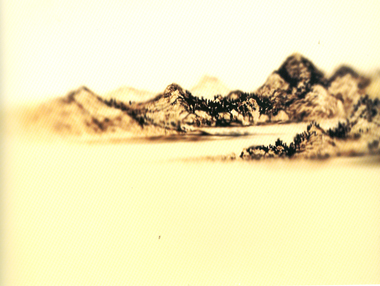 |
|
Song Yonghua |
Emerging artist Song Yonghua may not have begun creating art until nine years after graduation, but his first set of work clearly indicates he is on the way to being a star of tomorrow, as many experts predict.
Song graduated from Shanghai Theater Academy in 1998 but only started to paint in 2007. Now, his signature big landscape oil paintings are on display at 1918 Art Space.
The landscapes generally feature tranquil mountains, valleys and rivers, but not painted in a realistic way. His subtle touches for snow-capped mountains make them seem calmer while his twisted strokes make canyons more magnificent than real.
It is Song's belief that to do a job simply to make money is meaningless. Instead he wants to "leave" something behind, which is why he began to paint.
Like most artists, Song tried the techniques of masters in his early works but gradually changed from people to landscapes as his subject matter.
In one aspect, Song is typical in that he does not like too specific a subject matter, such as a certain person or a story. He prefers vague and subtle or even unexplainable topics because they do not "block" one's mind.
Out of a love for nature and in an attempt to be as pure as possible, Song finally found that only unreal landscapes can best represent his emotions.
While a fast painter, he actually spends quite a lot of time thinking before he picks up a brush. The thinking and preparation phase is in fact much longer than the working process.
 |
|
Artist Song Yonghua's landscapes generally feature tranquil mountains, valleys and rivers, such as this one, "Vanishing Landscape 7". |
But while he may think a lot before he moves, he does not change his mind once he has started painting.
For any artist who creates landscapes, it is likely to be traditional, which is not such a good choice today. Therefore, Song keeps exploring new possibilities and new techniques, refusing to copy or repeat his work.
He believes "hot" Chinese contemporary artists who produce copy after copy of fishy-looking faces are just "cheats." To make 50 pieces like that for money might be okay, he says, but hundreds of them are excessive.
His idea on the medium or subject matter for contemporary art is quite broad. Reproducing the same thing for money is what he is against, but there's nothing people must not do for contemporary art and he is in favor of any possibilities and diversities.
Date: through December 19, 10.30am-7pm
Address: 78 Changping Rd, Shanghai
Tel: 5228-6776
(Shanghai Daily December 5, 2008)